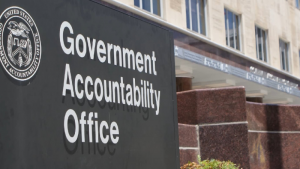Fairmont State University in West Virginia has appointed Paul Steinhaus as its new chief information officer (CIO).
Two Michigan lawmakers, Sens. Michael Webber and John Damoose, are proposing legislation that would implement mobile panic alert systems throughout the state’s public and nonpublic schools to ensure real-time coordination between schools, 911, law enforcement, and first responders.
Saint Louis Public Schools (SLPS), which operates public schools in the City of St. Louis, Mo., has inked a three-year transportation contract with Zum, a provider of student transportation services that feature data-driven routing, driver tracking, and app-driven updating functions through a mobile app.
A new report from the nonprofit Educause finds that the higher education community is increasingly viewing artificial intelligence (AI) as a strategic priority, but is still facing operational and institutional roadblocks to fully embracing the new technology.
Gene Dodaro, comptroller general of the United States and head of the Government Accountability Office (GAO), told lawmakers this week that his agency is preparing to potentially take President Donald Trump to court over his efforts to freeze Federal funding for programs that Congress has already approved.
California Gov. Gavin Newsom has launched a new deliberative democracy program intended to bring Californians together to engage, interact, and share ideas to help shape government services and collectively create policy solutions.
Law enforcement across the state of Ohio now has access to enhanced aviation downlink technology. The new technology allows Ohio State Highway Patrol’s (OSHP) Aviation Unit to transmit live feeds of aerial video footage to command staff on the ground during active, evolving criminal investigations and emergencies.
The Sacramento Regional Transit District (SacRT) is working with the City of Sacramento to launch a Bus Stop Enforcement Program that is aimed at improving safety and accessibility for riders and SacRT employees.
New York City has selected T-Mobile as the carrier network to support city operations.
A new audit from the New York State Comptroller’s office found that the state’s Office of Information Technology Services’ (ITS) has lost thousands of devices due to waste, inventory mismanagement, and lax security.













